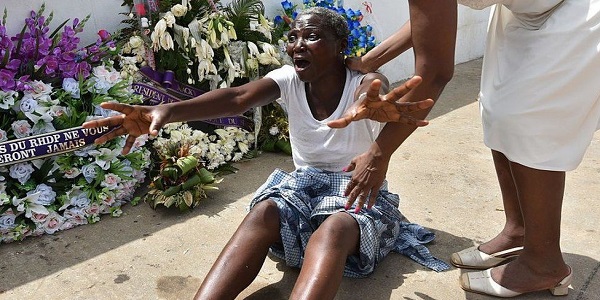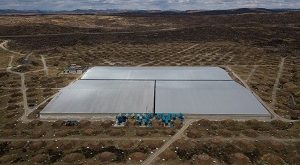Why are African nations purchasing Turkey’s Bayraktar TB2 drones?

Why are African nations purchasing Turkey’s Bayraktar TB2 drones? Following their success in numerous conflicts throughout the world, Turkish drones are increasingly being purchased by African states to combat armed groups, according to analyst Paul Melly. Africa purchasing Turkey’s Bayraktar TB2 drones weapon that the Kyiv administration could already use was the Bayraktar TB2 drone, as Ukraine stepped up its early defense against Russia’s invasion and long before Western heavy artillery and rocket launchers started to arrive.
With the aid of this Turkish-made weapon, Azerbaijan was able to overcome Armenian armored forces and retake a large portion of the land lost during the Nagorno-Karabakh war in 2020. However, those who are impressed by the drone’s powers are not just found in eastern Europe and the Caucasus.
The West African nation of Togo, which is battling to stop the infiltration of Islamist extremists traveling south from Burkina Faso, recently received a shipment of Bayraktar TB2 aircraft. In May, Niger bought 12 of these adaptable and reasonably priced drones for its armed conflicts with insurgent groups in the Sahel region south of the Sahara Desert and in the vicinity of Lake Chad. Ethiopia, Morocco, and Tunisia are some other African nations that have purchased from us, and Angola has also shown interest.
The Pixel 7, the Galaxy S23, and the iPhone 14
But the UN-recognized government in Libya, where they were first detected in 2019 and may have helped Tripoli’s forces fend off eastern rebels, may have been the first to utilize these sophisticated surveillance and strike weapons on the continent.
States like Niger and Togo are especially drawn to this.
In order to stage ambushes and launch surprise attacks on remote army and gendarmerie posts, border crossings, and civilian communities, these groups must overcome the difficult challenge of containing highly motivated and mobile bands of Islamist militants. These groups camp out in the bush and ride quickly through the thorny Sahelian terrain on motorcycles.
Several hours’ drive from the nation’s capital, Niamey, in the tri-border region where Niger meets Burkina Faso and Mali, the army of Niger has been battling extremists for years. Additionally, government forces are fighting a difficult battle to defend the far southeast from attacks by Boko Haram and the Islamic State West Africa Province (Iswap).
However, the direct reality of the jihadist threat is a very recent and extremely alarming development for Togo. The majority of the past ten years saw the terrorist organizations’ activities concentrated in the central Sahel, specifically in Mali, Burkina Faso, and Niger, and mostly in places that were relatively far from their borders with coastal nations like Ivory Coast, Ghana, Togo, and Benin.
But as the armed groups expanded their control over large portions of Burkina Faso and into rural areas along the border with these four states, the situation has started to change more lately.
Guyana reports first Monkeypox case
At Sanloanga, the first direct raid on Togo itself occurred in November. Then, on May 11, just before dawn, dozens of terrorists attacked an army outpost near Burkina Faso at Kpék-pakandi, killing eight troops and injuring 13. The soldiers retaliated, killing some of the attackers. In Savanes, Togo’s most northern region, the government declared a state of emergency the following month. A second incident in July resulted in the deaths of two troops.
In an effort to Africa purchasing Turkey’s Bayraktar TB2 drones President Faure Gnassingbé has made a tour of the region. However, some severely traumatized residents have been fleeing their homes, a pattern also observed in other Sahelian regions affected by militant conflict. The long-established dictatorship even felt the need to invite opposition parties to meetings to discuss creating a unified national policy to deal with the threat posed by militants. However, ultimately, using actual military force will be necessary.
Drone use is not new in the Sahel. Drone bases operated by the US and France are present in Niger and serve the national security plan.
Drones are a useful tool for boosting total military capacity for larger powers like Ethiopia, where the federal government has been combating the Tigray People’s Liberation Front. But, just like with manned airplanes, there are risks. The supply alliance with Turkey benefits Togo and Niger politically as well, by lessening their reliance on strong security alliances with France, the former colonial power, about which a sizable segment of local opinion is still concerned. Additionally, there is a personal tie among the Turkish political and corporate elite.
Source: BBC


